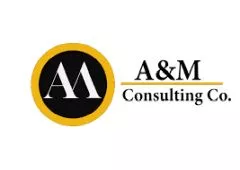- with readers working within the Business & Consumer Services industries
- in United States
- within Finance and Banking, Food, Drugs, Healthcare and Life Sciences topic(s)
VAT Refund in Turkey for Business: A Complete Guide
In Turkey, Value Added Tax (VAT) is one of the most significant taxes for businesses. As a consumption tax applied at every stage of the production and distribution process, VAT impacts nearly all commercial transactions.
However, in Turkey businesses are often entitled to reclaim VAT on certain purchases or some trade transcations, which can help improve cash flow and reduce operational costs.
This guide will provide a detailed overview of VAT refunds for businesses in Turkey, covering eligibility, the refund process, and key considerations for maximizing VAT recovery.
What is VAT?
VAT (Value Added Tax), locally referred to as KDV (Katma Değer Vergisi), is a tax levied on the sale of goods and services in Turkey. The standard VAT rate is 20%, though reduced rates of 1%, 8% and 10% apply to certain goods and services, such as food, medicene, books, and agricultural products.
Businesses registered for VAT in Turkey are required to collect VAT on their sales and pay VAT on their purchases. The difference between the two can lead to a VAT refund if the input VAT (paid on purchases) exceeds the output VAT (collected from sales).
Need more info? Click the link VAT in Turkey
What is a VAT Refund in Turkey For Business?
A VAT refund allows businesses to recover VAT paid on eligible purchases when the input VAT is higher than the output VAT. This scenario is common in certain industries, particularly those involved in exports, manufacturing, global transportation, voice-roaming, contruction large-scale investments. Refunds are particularly important for businesses to prevent VAT from becoming a financial burden.
Common VAT Refund Scenarios in Turkey for Businesses
1. Export-Oriented Businesses
Under Turkish tax law, exported goods and services are typically zero-rated for VAT, meaning that while no VAT is charged on exports, businesses are still entitled to reclaim the VAT paid on related inputs (such as raw materials, logistics, and services). This is one of the most common situations where businesses can claim a VAT refund. Examples of these businesses include:
- Manufacturing
- Global Transportation
- Voice-Roaming(VOIP)
2. Businesses with Large Investments
If a business is making significant investments in capital goods, such as machinery or industrial equipment, it can lead to an excess of input VAT over output VAT. This is especially common in sectors like manufacturing, infrastructure, and construction, where large-scale investments are often made.
3. VAT Refund for R&D Expenses
Companies involved in research and development (R&D) can benefit from VAT refunds related to expenses incurred for R&D activities. This applies to businesses engaged in innovation, technological development, and software development.
4. VAT Refund on Public Sector Contracts
Companies providing goods or services to the Turkish government or other public entities may be eligible for a VAT refund. Public sector contracts often have specific tax exemption rules, allowing businesses to recover VAT paid during the contract's execution.
5. VAT Refund on Construction Sector: In Turkey, sales of houses with a net area of not more than 150 m² are subject to a 1% VAT rate. However, since the raw material inputs used for their construction, such as iron, concrete, brick, sand, are generally subject to a 20% VAT, the difference in rates allows construction businesses to receive a VAT refund.
Eligibility for VAT Refund in Turkey for Business
To be eligible for a VAT refund in Turkey, businesses must meet the following criteria:
- VAT Registration: The business must be registered for VAT with the Turkish tax authorities.
- Eligible Transactions: VAT refunds can only be applied to certain sectors, services and transactions.
- Audit Report: For VAT refunds exceeding a specific amount in Turkey, an audit report from a certified public accountant may be required. This report must verify that the refund transactions and documentation comply with legal requirements.
- Tax Compliance: The business must be in good standing with the Turkish tax authorities and comply with all VAT reporting and payment requirements.
- Warranty: In Turkey, you may be required to provide a warrant for immediate refund of VAT refunds exceeding a certain amount, the warranty will be returned after the investigation is completed.
How to Apply for a VAT Refund in Turkey for Business?
The process of applying for a VAT refund for businesses in Turkey involves several steps. Here's how you can ensure a smooth and successful refund claim:
1. Prepare Your Documentation
Proper documentation is crucial when claiming a VAT refund. The following documents are typically required:
- Tax Invoices: Ensure that all invoices for purchases are VAT-compliant and correctly issued.
- VAT Declarations: Submit regular VAT declarations (usually on a monthly or quarterly basis) to the Turkish Revenue Administration (GİB).
- Export Documentation (if applicable): For export-related refunds, you will need to provide customs documents proving that the goods left Turkey.
- Contracts and Purchase Agreements: For businesses involved in investment projects or public sector contracts, additional documentation, such as contracts and investment certificates, may be required.
2. Submit a VAT Declaration
Every business in Turkey that is registered for VAT must file a VAT declaration with the Turkish tax authorities. In this declaration, businesses report the amount of VAT collected from customers (output VAT) and the VAT paid to suppliers (input VAT). If the input VAT exceeds the output VAT, a refund can be claimed.
3. VAT Refund Application
If your business qualifies for a VAT refund, you can apply through the e-Refund System (KDV İadesi Elektronik Başvuru Sistemi), which is managed by the Turkish Revenue Administration (GİB). Businesses can submit their VAT refund claims electronically, along with the required supporting documentation.
4. Customs Documentation for Exports
If your VAT refund claim is related to exports, you will need to provide customs documentation to prove that the goods were exported from Turkey. This is essential for securing a zero-rated VAT on exports.
5. Approval and Refund Process
Once your application has been submitted, the Turkish tax authorities will review your claim. They may request additional documentation or conduct audits to verify the validity of the refund claim. If approved, the refund can be issued as:
- A direct cash refund
- A set-off refund
Businesses that are entitled to receive a VAT Refund may request that their receivables be offset against their following debts:
- Other Tax Debts
- SGK Premium Debts
The processing time for a VAT refund can vary, depending on the complexity of the claim and the documentation provided. In general, refunds may take several weeks to be processed and approved.
Important Considerations for VAT Refunds
1. Timely Submission
VAT refund applications must be submitted within a specific time frame after the relevant tax period. Late submissions may result in delays or rejection of the claim.
2. Accurate Record-Keeping
Maintaining accurate and organized financial records is essential for a successful VAT refund claim. Ensure that all invoices, receipts, and declarations are stored properly and are easily accessible.
3. Professional Support
Given the complexity of the VAT refund process in Turkey, it may be beneficial for businesses to work with a tax advisor or accountant experienced in Turkish tax law. Professional assistance can help ensure that your claim is submitted correctly and in compliance with all legal requirements.
4. Common Reasons for Rejection
VAT refund claims may be rejected if:
- Invoices are incomplete or incorrectly issued.
- The business is not compliant with Turkish tax laws.
- There is insufficient documentation to support the refund claim.
- VAT Declarations are incomplete or incorrectly submitted.
VAT Refunds for Foreign Businesses
Foreign businesses operating in Turkey, but not established in the country, may also be entitled to a VAT refund under certain conditions. This applies particularly to companies that attend trade fairs, exhibitions, or provide services in Turkey but do not generate revenue within the country. These businesses can reclaim VAT on purchases related to their operations, such as accommodation, transport, and promotional activities.
The content of this article is intended to provide a general guide to the subject matter. Specialist advice should be sought about your specific circumstances.


